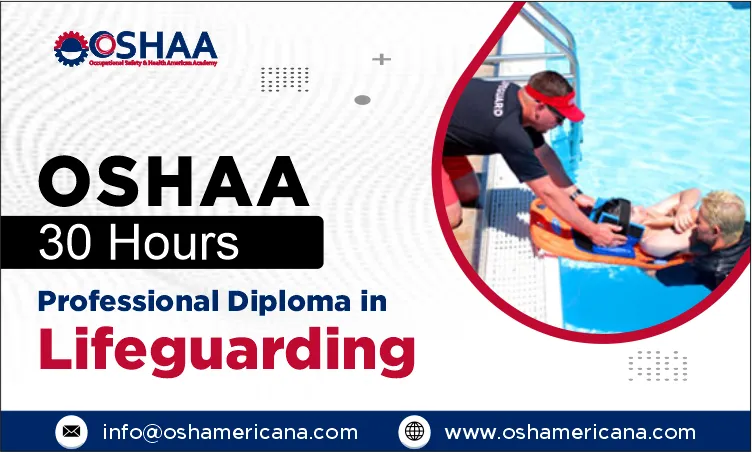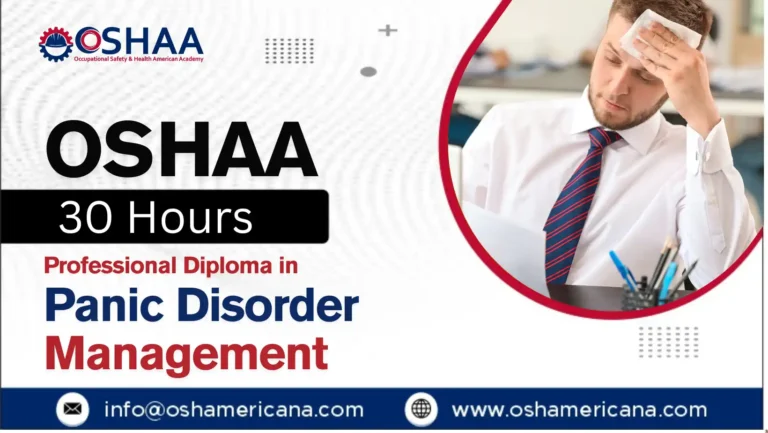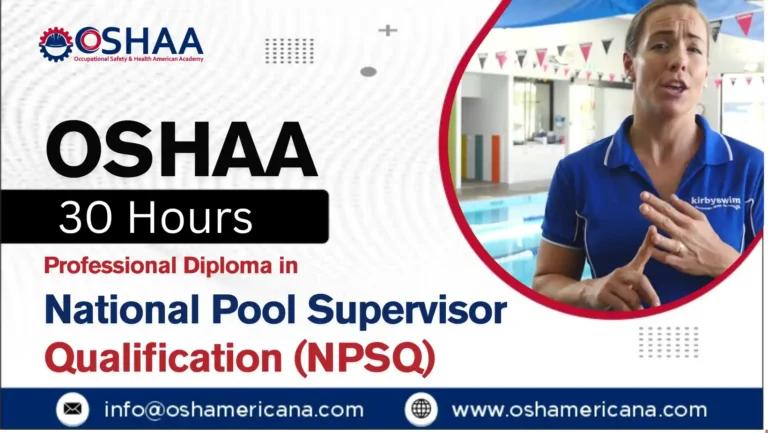Lifeguarding is a vital profession that ensures the safety of individuals in aquatic environments. Whether at swimming pools, beaches, or water parks, lifeguards play a crucial role in preventing accidents, responding to emergencies, and promoting safe water practices. The OSHAA 30-Hours Professional Diploma in Lifeguarding provides comprehensive training for individuals seeking to develop their skills in water safety, rescue techniques, and emergency response.
This diploma is designed to equip participants with the necessary knowledge and practical skills to work as a professional lifeguard. Covering essential aspects such as risk assessment, CPR, first aid, and water rescue techniques, the course ensures participants are well-prepared to handle emergencies in various aquatic environments. It follows internationally recognised lifeguarding standards, making it suitable for individuals aspiring to work in swimming pools, leisure centres, resorts, and open water locations.
The OSHAA 30-Hours Professional Diploma in Lifeguarding provides essential skills and knowledge for individuals committed to ensuring safety in aquatic environments. By completing this course, participants gain expertise in accident prevention, emergency response, and life-saving techniques, making them valuable assets in the field of lifeguarding. Whether pursuing a professional career or looking to enhance personal water safety skills, this diploma serves as a vital step towards making aquatic environments safer for everyone.
OSHAA 30-Hours Professional Diploma in Lifeguarding
Study Units
Learning Outcomes
Introduction to Lifeguarding and Water Safety (2 Hours)
- Understand the role and responsibilities of a professional lifeguard
- Learn fundamental principles of water safety and accident prevention
- Recognise common hazards in aquatic environments
- Develop awareness of legal and ethical aspects of lifeguarding
Risk Assessment and Hazard Prevention in Aquatic Environments (4 Hours)
- Identify potential risks and hazards in different water settings
- Learn effective risk assessment techniques for accident prevention
- Understand safety protocols for pools, beaches, and water parks
- Develop strategies to minimise risks and enhance public safety
Observation, Surveillance, and Scanning Techniques (5 Hours)
- Learn effective scanning techniques to detect potential dangers
- Understand the importance of constant supervision in aquatic areas
- Develop skills in identifying distressed swimmers and emergency situations
- Improve situational awareness and response time during incidents
Emergency Action Planning and Incident Management (5 Hours)
- Understand the importance of emergency action plans (EAPs)
- Learn procedures for handling various water-related emergencies
- Develop skills in coordinating emergency responses and teamwork
- Gain knowledge of post-incident reporting and debriefing processes
Basic Life Support (BLS), CPR, and First Aid for Lifeguards (4 Hours)
- Learn the fundamentals of Basic Life Support (BLS)
- Develop skills in administering CPR for adults, children, and infants
- Understand first aid techniques for common water-related injuries
- Gain confidence in responding to medical emergencies in aquatic settings
Water Rescue Techniques and Victim Handling (4 Hours)
- Learn different water rescue techniques for conscious and unconscious victims
- Understand how to safely approach and assist distressed swimmers
- Develop proficiency in using rescue aids and flotation devices
- Gain skills in handling multiple victim rescues effectively
Spinal Injury Management and Special Rescue Situations (3 Hours)
- Understand the risks and signs of spinal injuries in water environments
- Learn proper techniques for stabilising and extracting spinal injury victims
- Develop skills in handling emergencies involving deep water and strong currents
- Gain knowledge of special rescue situations such as submerged victims
Use of Lifeguarding Equipment and Personal Protective Gear (3 Hours)
- Learn the correct use of lifeguarding equipment, including rescue tubes and boards
- Understand the importance of personal protective gear in lifeguarding operations
- Develop proficiency in operating emergency communication tools
- Gain knowledge of maintenance and proper storage of lifeguarding equipment
1. Comprehensive Lifeguard Training
Provides in-depth knowledge and practical skills required for professional lifeguarding in pools, beaches, and other aquatic environments.
2. Internationally Recognised Certification
Enhances career prospects by offering a qualification that meets global safety and lifeguarding standards.
3. Advanced Emergency Response Skills
Equips participants with essential life-saving techniques, including CPR, first aid, and water rescue procedures.
4. Increased Public Safety Awareness
Develops a strong understanding of accident prevention, risk assessment, and hazard identification in aquatic settings.
5. Enhanced Career Opportunities
Opens pathways to employment in leisure centres, resorts, water parks, and other aquatic facilities.
6. Strengthened Leadership and Teamwork Skills
Improves communication, teamwork, and decision-making abilities during emergency situations.
7. Practical Hands-On Training
Provides real-world experience in rescue techniques, victim handling, and incident management.
8. Compliance with Safety Regulations
Ensures adherence to local and international health and safety laws governing lifeguarding and water safety.
9. Improved Physical Fitness and Endurance
Enhances swimming skills, stamina, and overall physical fitness necessary for lifeguarding duties.
10. Contribution to Community Safety
Empowers individuals to play a vital role in preventing water-related accidents and ensuring public safety.
1. Aspiring Lifeguards
Ideal for individuals looking to start a career in professional lifeguarding at pools, beaches, and water parks.
2. Swimming Instructors and Coaches
Beneficial for professionals involved in teaching swimming and aquatic activities who need safety and rescue training.
3. Resort and Hotel Staff
Essential for employees working in pools, spas, and waterfront areas to ensure guest safety.
4. Water Sports and Recreational Facility Operators
Suitable for those managing aquatic sports centres, adventure parks, and boating activities.
5. Fitness and Wellness Professionals
Helpful for personal trainers and aquatic fitness instructors who work in water-based exercise programmes.
6. Emergency Responders and First Aid Providers
Valuable for fire fighters, paramedics, and safety officers who may need water rescue training.
7. Teachers and School Staff
Ideal for educators responsible for student supervision during swimming lessons and water activities.
8. Community Volunteers and Lifesaving Enthusiasts
Useful for individuals involved in public safety, water safety campaigns, and disaster response teams.
9. Security and Safety Personnel
Relevant for security officers working in aquatic environments such as cruise ships, sports clubs, and recreational centres.
10. Anyone Interested in Water Safety
Perfect for individuals who want to develop life-saving skills for personal safety and community protection.







